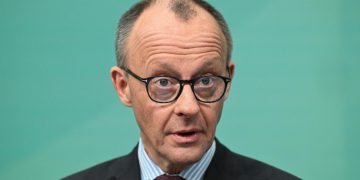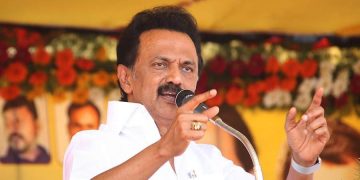As military and humanitarian aid worth billions of dollars keep pouring into Ukraine during its ongoing war against Russia, there has been creeping suspicion of misuse of the funds and corruption at high offices. The temptation seems to be too great to be resisted in a country known for endemic corruption at the higher echelons. That the killings and sufferings of the people on a monumental scale could not deter the corrupt from allegedly satisfying their greed for filthy lucre is a measure of the state of affairs not only in Ukraine but it would very much be the same in India too. It is a well known fact that senior Indian armed forces officers and even civilian bureaucrats dealing with matters of defence do not hesitate to take a big piece of the pie when it has to do with purchases for the forces.
The war in Ukraine may have deflected the attention from this side of the story, but corruption appears to be too deep-rooted to stop resurfacing even in the midst of a deadly turmoil. Now comes the biggest political shake-up in wartime Ukraine. A slew of top officials have either resigned or been sacked in the past few days in the wake of the revelation by a Ukrainian newspaper of a corruption scheme involving food supplies to the military. Curiously, the scandal was unearthed after Germany finally consented to supply to Ukraine some of the world’s most sophisticated tanks it produces – the Leopard 2 – after dithering at the crucial meeting of defence ministers of Europe and the US in Germany a few days back. It is believed Germany changed its stance after it got word that Ukraine would come clean on allegations of corruption by some front ranking political and military leaders.
High-profile corruption scandals have triggered a chain of dismissals and resignations in Ukraine. President Volodymyr Zelenskyy’s office announced the sacking of four Deputy Ministers and five regional Governors in the past three days. Among them is the Deputy Chief of Staff of the Presidency, Kyrylo Timoshenko, the Deputy Minister of Defence, Vyacheslav Shapovalov, and the Deputy Prosecutor General, Oleksii Simonenko. Regional Governors of Dnipropetrovsk, Zaporizhzhia, Kyiv, Sumy and Kherson, which were on the frontline against Russian troops, have also been removed from positions of power.
These dismissals and resignations come after the revelation of two cases of financial malpractice. The Deputy Minister for Infrastructure, Vasyl Lozinsky, is accused of having pocketed US$400,000 (€368,000) in bribes on contracts to purchase generators. He was removed from office. He seemingly had no compunction to indulge in corruption when the people in his country continue to face severe power shortages due to the fighting. The Deputy Defence Minister Vyacheslav Shapovalov resigned after an investigation by the Ukrainian Press accused the defence ministry of paying “two or three times the market price” for food for the army. The swindle reportedly amounted to €303 million.
Kyrylo Timoshenko did not give a reason for his resignation, but he had been a target of attack in the media for his personal use of an SUV that was donated by the United States to evacuate victims in combat zones. He later publicly gave up the vehicle and sent it to the frontline.
According to a Ukraine media report last week food prices quoted in a Ministry of Defence contract were up to three times higher than in supermarkets in Kyiv. “The rear front rats from the Defence Ministry steal more food from the armed forces than in peacetime,” the report stated. Defence Minister Oleksiy Reznikov fulminated against the publication, saying the prices were higher because of the logistical problems involved in delivering goods to the frontlines. He has managed to keep his job till now, but heads have begun to roll with the list of sacked officials growing longer by the day. The alleged corruption casualties include his Deputy.
The question is what has prompted the sudden spate of resignations at the height of the war against Russia when the morale of the people is so high following successes in repelling Russians out of strategic areas. Zelenskyy’s assertion in his television address gives ample clue: “I want it to be clear – things would not be the same anymore.” His pledge of “zero-tolerance” to graft shows in the war against corruption he has nothing to lose, but much more to gain. Both entry into NATO – a major cause of the war against Russia – and further supply of arms, ammunition and aid for rebuilding the war-ravaged country presuppose corruption-free governance. Zelenskyy’s advantage is that he is not a hardcore politician and he won the election in 2019 on the promise of fighting against corruption that bedevilled the previous government.
Whipping up war hysteria, as many ruling politicians the world over including India do, is easy demagoguery. Waging a war against corruption, however, against corrupt ministers and cronies in business and industries looting financial resources of a country appears to be an uphill task. Like most Indians would have realized by now that big talk necessarily does not always go with big action when friends and cronies enter the pictures.

![Local residents remove debris from a house of their neighbour damaged by a Russian military strike, amid Russia's attack on Ukraine, in the town of Hlevakha, outside Kyiv, Ukraine [Valentyn Ogirenko/Reuters]](https://www.orissapost.com/wp-content/uploads/2023/01/UK-750x375.webp)




































